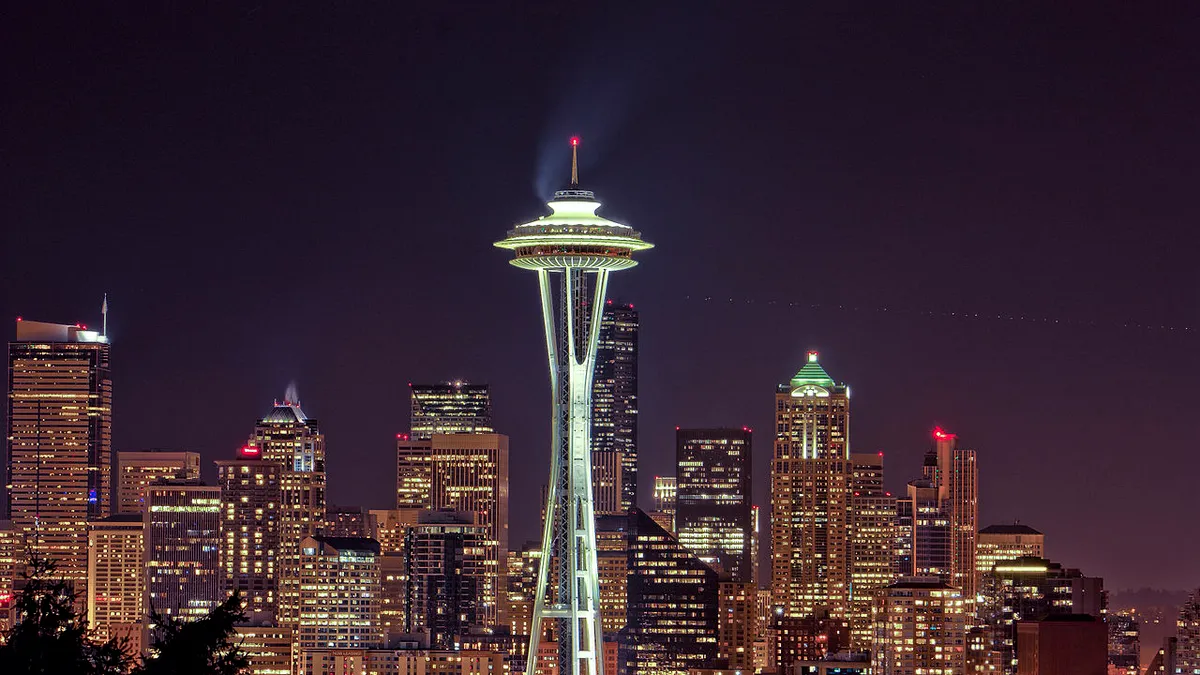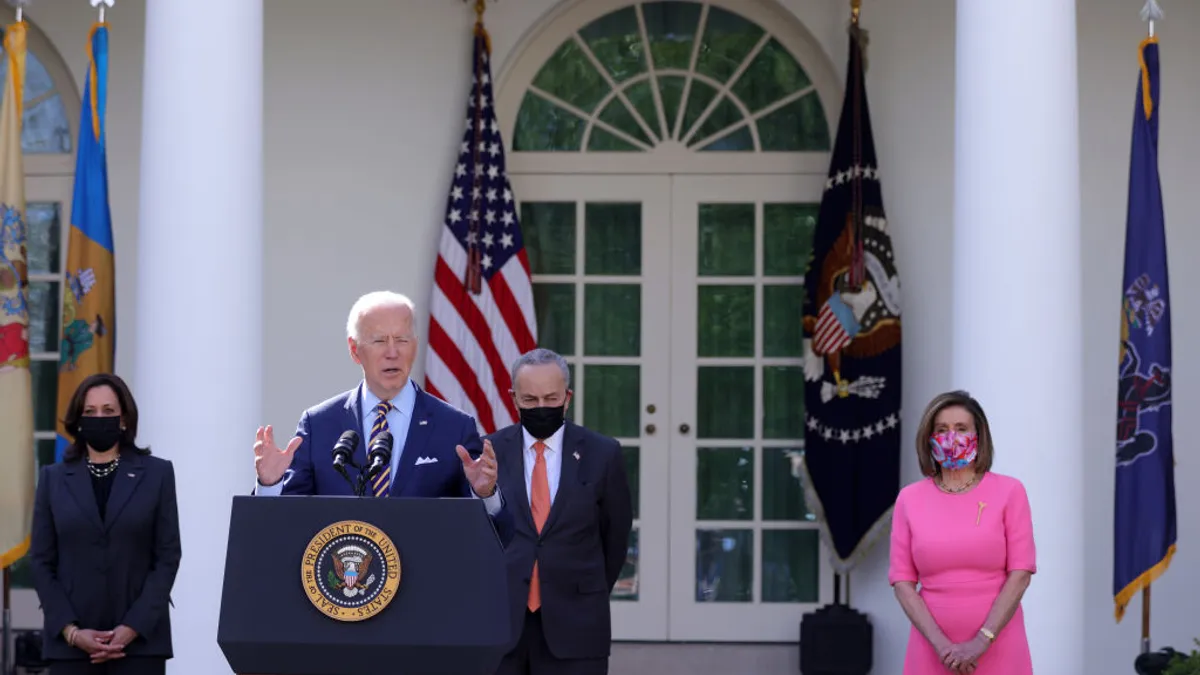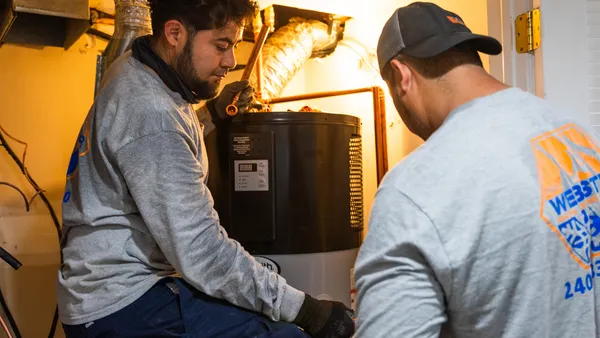UPDATE: May 15, 2018: Seattle City Council voted unanimously to approve a scaled-back version of the head tax after some criticism from businesses located in the city, according to The Seattle Times and others.
The new version imposes a $275-per-employee tax on companies that gross at least $20 million a year. That is a reduction from the original proposal of $500-per-employee, which Mayor Jenny Durkan had threatened to veto.
In a statement, Amazon Vice President Drew Herdener derided the plan as a "tax on jobs," but said they have resumed construction planning on a project after putting it on hold during Council's negotiations. "We are highly uncertain whether the city council’s anti-business positions or its spending inefficiency will change for the better," Herdener continued.
Dive Brief:
- Amazon has stopped work on a high-profile construction project in Seattle over a planned business tax that its city council said would fund help for the homeless, according to The Seattle Times and others.
- The company is planning a 17-story downtown tower, and had planned to lease office space in a Rainier Square skyscraper, creating an estimated 7,000 new jobs.
- The company has paused all work and said it might only sub-lease the skyscraper until the Seattle City Council votes on a proposed "head tax" based on the number of a company's employees and their salaries. The new tax could raise at least $75 million.
Dive Insight:
This disagreement between Amazon and Seattle highlights the tightrope cities must walk when they have large employers but also want to fund programs such as affordable housing and programs for the homeless by raising taxes or levying new ones. And it may give some pause to the remaining 20 cities shortlisted for Amazon's HQ2, who have been sworn to secrecy on the nature of their bids and will want to make sure the expected $5 billion investment and 50,000 new jobs come with corporate responsibility and equity for existing residents.
And it comes a week after Amazon reported first quarter profits of $1.6 billion, leading some activists in the Seattle area to question whether the company and other businesses running large profits can do more to help with homelessness. The money collected through the business tax is proposed for use for emergency shelters, rental vouchers, safe lots for homeless vehicle campers and tiny house villages.
The program appears to have worsened the bad blood between the business community and the city government. On Twitter, Amazon Web Services CEO Andy Jassy described the proposal as "Insane," and cited analysis from the Tax Foundation that described the plan as "bewildering" for targeting the technology industry.
Whether Amazon's latest gambit is a negotiating tactic or part of a wider trend, there should be more clarity once City Council votes on the tax. Mayor Jenny Durkan said she hopes both sides can find common ground, while Councilmember Kshama Sawant told the Puget Sound Business Journal that there is no evidence companies leave cities because of taxes.
"When you accept the logic that making sure a small measure of the wealth is getting used for social good is somehow going to have an apocalyptic effect on the overall economy, that basically means conditions will get worse for us all," Sawant said.











